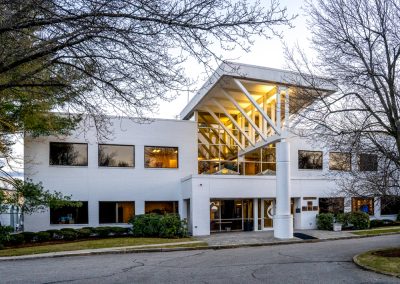
Mayor Michelle Wu introduced legislation transforming the structure of the Boston Planning and Development Agency (BPDA) by ending decades-long urban renewal projects and establishing a new charter and department for Boston’s city planning and design process.
Despite these changes to the BPDA, the board announced on Jan. 19 the approval of several new and ongoing projects throughout Boston.
Still, the Mayor’s new executive orders and legislation will not affect the current projects run by the agency, said Brittany Comak, assistant director of communications at the BPDA.
Since Wu’s State of the City address on Jan. 25, Wu has introduced numerous legislative proposals that, over time, seek to transfer power from the BPDA to a new City Planning and Design Department.
One of those pieces of legislation is an executive order signed by Wu Wednesday that requires the “advance(ment) (of) a new BPDA mission: Resilience, Affordability, (and) Equity,” according to the executive order.
Under its current structure, the BPDA has the authority to buy and sell property through eminent domain as well as grant tax concessions to developers.
The agency has long been criticized by Wu as a broken development system, and she has pledged, since running for office in 2021, to “return assets to City oversight, end urban renewal, empower a planning (department) to create a master plan for updated zoning and clear, consistent rules,” according to her 2021 Mayoral campaign website.
Wu submitted a Home Rule Petition to the City Council on Jan. 30, which, if passed would abolish two sub-agencies of the BPDA entirely and simplify the agency by transferring all powers to a singular city planning authority under city’s control.
“The proposed legislation would create new tools to meet future needs such as climate change resilience infrastructure, and retain the BPDA ability to enforce restrictions that protect community assets, such as affordable housing and open space,” according to the BPDA’s website.
Wu previously signed another executive order on Jan. 26, that establishes a Boston Planning Advisory Council made up of various members of the cabinet that will, according to the order, “review and advise on all Departments’ planning processes before they commence.”
The council will also be in charge of coordinating ongoing plans as well as reviewing, advising and driving the implementation of all final development plans, according to the executive order.
“Urban planning by the City of Boston has often had uneven coordination across departments and inconsistent objectives across plans … planning has historically been peripheral to development proposals led to underinvestment in citywide planning,” Wu said in the executive order.
Although the BPDA’s structure is rapidly changing, the agency still has control over many ongoing projects.
Senior planner at the BPDA Ted Schwartzberg works on one of the projects — Copley Connect — run by the BPDA in collaboration with the Department of Transportation.
Copley Connect was a 10-day pilot program in June 2022 that closed a part of Dartmouth Street in front of the Boston Public Library to cars and opened it to pedestrians, holding activities to encourage the use of the space.
“People were really excited to have this space open for pedestrians and programming,” Schwartzberg said.
On Jan. 19, the BPDA board approved the authorization of a request for proposal to allow the agency to use funding to continue working with the Department of Transportation and the Public Works department to “study what components of what was done in June worked really well, what components did not work, all with an eye to understanding future use of Dartmouth Street,” said Schwartzberg.
Other projects approved by the BPDA board include transforming a former WBZ-TV station in Allston to become the site of three life science buildings and one apartment building, and the proposal of a long-term plan that would redevelop Simmons University Residence Campus — adjacent to Boston University’s Fenway Campus — into a mixed-use site with nearly 400 residential units creating 5,000 permanent jobs, according to the BPDA website.
The BPDA board also approved the distribution of $200,000 in funds, part of the Harvard Allston Partnership Fund, to 20 non-profit organizations in the Allston-Brighton area, according to their website.
One organization that received funding from the fund is the Allston-Brighton Food Pantry, which was awarded $5,000.
“It’s the greatest thing ever,” said Chef Pamela Cannon, the food ministry coordinator for the Allston Brighton Food Pantry.
The food pantry will put the money toward purchasing paper products to be more environmentally friendly, since they provide 5,000 meals each year, Cannon said.
The Family Nurturing Center — a Dorchester based center that provides parenting education and family support to parents and children in Boston neighborhoods, including Allston and Brighton — also received funding in the amount of $20,000.
Valerie Bean, director of development for the Family Nurturing Center, said she is “thrilled” to be a recipient of the fund once again.
“The Harvard Allston Partnership Fund is supporting the work we’re doing with families, providing these types of programs … for families living in the North Allston, North Brighton neighborhoods,” Bean said. “This is the largest grant we’ve ever received because they had more money in the fund this year. So that is great for everybody.”























































































































James Eadie • Feb 2, 2023 at 4:29 pm
Great article. Well written and informative. Love to see things like this happen and appears to appeal to a broad spectrum of Bostonians. Love the city and glad to see things are happening.